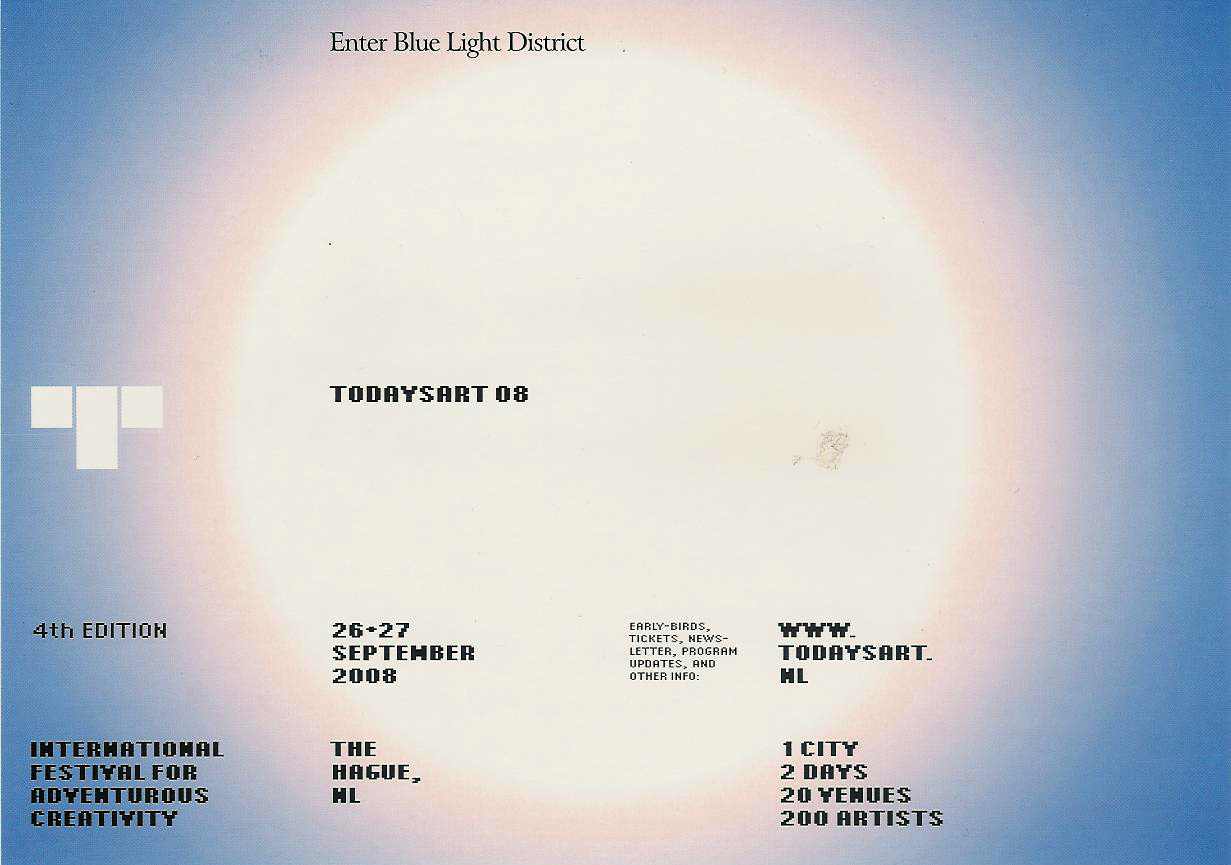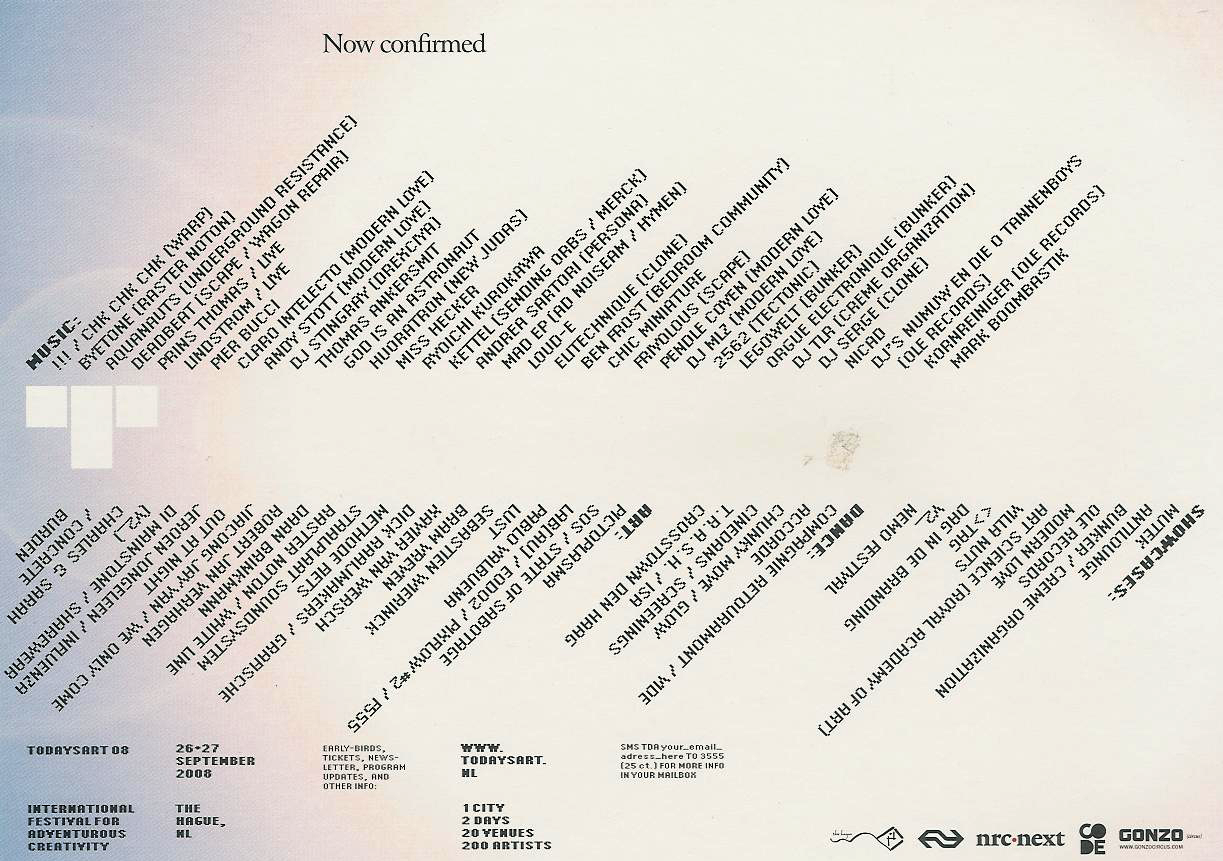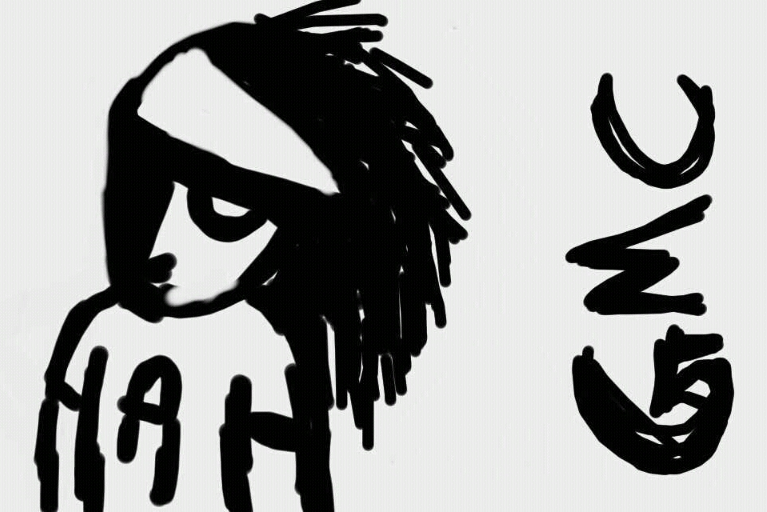Archive for August, 2008
Thursday, August 28th, 2008
“SUNNYVALE, Calif., August 28, 2008 TWIKI.NET, the leading provider of open source enterprise collaboration solutions, announced a new release of open source TWiki.” is how the latest from the propaganda-machines at TWiki.net starts. Although not explicitly stated, it reaffirms the suggestion that open source TWiki.org is owned and created by TWiki.net. This is, however, far from the truth, as there has been no significant code contribution coming from the company whatsoever.
This recent outburst of unfair PR (but also requests from certain people) has prompted me to put online an english translation of a blog post I wrote on the subject early july of this year (on my own blog and on livre.nl). I am still an avid user of TWiki, because its potential is great. This means I find bugs, from usage on my own sites or one of the many hosted instances I mantain for my customers. I stopped active participation in the community, but so far did report any serious bugs. I think it is time to put a halt to that too: if TWiki.net wants me to work on what they consider their software, well: let them pay me!
So, here is the translated blog post, for the international audience to enjoy (it led to some nasty business where an innocent bystander was accused of being my sock-puppet, so it is some controversial material kids :).
Open source and commerce: how it can fail miserably
“Aforementioned projects, such as PostgreSQL and XWiki, have shown to benefit from an ‘enterprise’-version. I don’t see any reason why TWiki would be different.”, I wrote almost a year ago on Dutch open-source news site livre.nl. That optimism has been replaced by skepticism. Since TWiki.net entered the stage, TWiki went into a deep crisis.
TWiki.NET (the commercial off-shoot) rolled over the opensource project like a tsunami. TWiki.NET would strengthen the commuity, but forgot to respect existing structures. Without hesitation their marketing-department came with slogans that claimed work of the many volunteers that contributed over the years as their own.
The latest release is version 4.2, which is half a year old. In the mean time several bugs have been discovered, some of which threaten the security of TWiki installations. The long-awaited patch-release, 4.2,1, is seriously stalled [at the time of writing this article originally, this was true, in the mean-time two new patch releases have been released]. The best example of why not to use TWiki is the project website itself: the site is slow, confusing and, according to many, simply ugly [since writing this article, a new server has been installed]. Core developers are quitting. The community is crumbling.
Failing organisation
When you start to dig in TWiki’s history, by looking in the project-wiki on twiki.org and by talking to the people who have been involved for years, you discover that all of the above is not new. The project has been limping on like this for years. Only a small number of programmers and contributors who developed the TWiki code and know it inside-out lasted longer than, say, 2 years. Others couldn’t reconcile themselves with the power-structure. The few ‘old-timers’ can tell endless stories about the people that came, got stupified and left.
What is missing is an inspiring leader. What TWiki has is a self-appointed ‘benevolent dictator’: founder Peter Thoeny. In itself, there is nothing wrong with having a benevolent dictator. Many open-source projects know such a person: linux has Linux Torvalds, ubuntu has Mark Shuttleworth, PostgreSQL has Tom Lane, perl has Larry Wall, and so forth. The significant difference is that they earned respect, they inspired people and thus earned the title. I am of the opinion that when you have to assert yourself ‘i am the benevolent dictator’, as Thoeny does, the predicate ‘benevolent’ can not apply anymore.
Now that next to leading the opensource project Thoeny has an enormous financial interest in TWiki.NET, the borders between both are fading. An extra handicap is that Thoeny is the only link between open-source community and the commercial entity. Looking at Thoeny’s public statements on (what is in his perception) his opposition, one fears for the image the employees of TWiki.NET have developed of the dedicated members of the open-source community. False accusations and blatant lies paint a bleak image of these persons.
Future
What does the future look like for TWiki? TWiki’s codebase is complex. New developers will have to walk a steep curve when the old-timers really quit the game. Discussions about the power-structure are ongoing, for many of the old-timers a proper resolution of that dillema is an important condition for getting back to business. The discourse is, however, progressing slowly and has to be framed in velvet words, because there is no room for critical remarks (did someone mention dictatorial?).
Of course, TWiki.NET can pay or even hire developers. Create a fancy corporate version, of which a usable but less feature-rich version will be available as open-source. The MySQL model. There’s nothing wrong with that, but for me personally it would be a lot less interesting to actively participate. Who knows, from time to time the f-word is mentioned: a fork would be a way out of the current impasse. I am reluctant to acknowledge this option, because not often does a fork lead to a happy end.
Fortunately TWiki is not unique (although potentially it could be). There are other solutions for the problems that TWiki is an answer to. Solutions maybe more powerful in certain areas, solutions that are certainly more user-friendly. I would be dissapointed if TWiki doesn’t develop to fulfill the promise, but I have the freedom to use alternatives. There are people that have specialised exclusively on TWiki. They will have a tough nut to swallow when TWiki does go bust.
I think that currently the most probable outcome is the MySQL model, where the existing community is replaced by a paid community. Of course, there is again the possibility, like my original article on livre.nl, that i’m all wrong and things will work out in the next months. Unfortunately, i’m skeptical.

Posted in English, Science 'n stuff | 6 Comments »
Sunday, August 24th, 2008
Ik begon me al wat zorgen te maken, na de oproep voor vrijwilligers had ik er namelijk weinig meer over gehoord. Maar gelukkig trof ik gisteren bij de balie van bink36 een flyer aan van todays art, het betere festival in Den Haag:



Posted in Art, Dutch, Music | No Comments »
Thursday, August 21st, 2008
Or actually, the reverse. Not long ago I started Jack Vance’s ‘Tales of the dying earth’, which is a collection of four (all four) of the dying earth novels. After a small interlude of short stories from Asimov’s, i continued into his ‘Alastor’, which provides the entire Alastor trilogy. I had never read Vance before, which is odd because he is one of the great of sci-fi, and with right i discovered.
To start with the dying earth: at first i was taken aback, as it started about magicians and strange gardens and a general atmosphere of fantasy i never quite can get in to. Even though the novel is set in the very-far future, where the sun is waning and coming to an end of its life (we’ll forgive Vance that the sun will not die as a small flickering red start but instead starts a new life cycle after expanding beyond earth’s atmosphere), there is not much technology in the stories.
One of the sub-stories details ancient technology, that after lying dormant in the foundations of an old city where strange folk live is brought to life again by an adventurer from elsewhere. I’m a sucker for hard sci-fi, where technology and the explanation thereof makes up an important part of the verbatim. It may then come as a surprise that this was not the story that interested me the most. What I found most intriging were the wanderings of Cugel the Clever.
Set in an almost medieval scenery (but like the other dying earth novels really situated in the far far future), the stories revolving around this unfortunate character describe his troubles as a result of trespassing on the premises of Iocunou the laughing magician. Cliffhanger after cliffhanger propel the reader (ie. myself) through the chapters. Misfortune is met by ingenuity (Cugel is not called the Clever for nothing), and in the end all is well.
However entertaining the dying earth novels were, their lack of star travel and techonology left me wanting. So I started the Alastor trilogy without too much expectations in that regard. The trilogy is set in Alastor cluster, a set of some 30.000 stars around many of which worlds revolve, inhabited by the off-spring of earth people. Three such worlds are described by the stories of some of their inhabitants.
Generally, the surroundings of these worlds are relatively low-tech, but still Vance manages to instill in the stories a good sense of how life might be in such a future where mankind has spread over 3000 worlds. He brilliantly discusses three very different cultures, that have evolved over the aeons. The story set on Marune reads like a fairy tale, with kings and queens, knights and noblemen and castles riddled with secret passageways. Still, they ride in air-cars and converse by video-phone.
The first and last stories show a contrast, in the story set on Trullion a young man returning from a few years of active duty to discover his homestead beyond recognition struggles to get together the money that, when acquired, will set everything right. Or so he thinks. An open, but relatively happy end leaves the reader wondering about what might follow with the people he has come to known intimately.
The last story, set on Wyst, is no doubt inspired by the anti-soviet sentiment prevalent in the US around the time the story was written, something you get a lot actually with sci-fi from the 60s/70s. Called egalism, the doctrine of equality among all gives the people of Arrabus a seemingly lustful live: they work only a few hours a week, and spend the rest of the week enjoying themselves. Although their joy is relative, as it exists mostly of drinking and exploring sexual perversities. There are only three dishes in the country, and all live the same live. Revolution is in the air, though, sparked by the visit of the off-worlder who is the hero in this story.
Vance is a master of describing cultures, somewhat reminiscient of David Brinn’s exptrapolations of extra-terresterial life (although of course Vance preceded Brinn). Reading the stories is visiting the worlds. It is easy to identify with the main character, because all three of them are, like the reader, dropped in unknown surroundings, perplexed by the people and the circumstances. Gradually the circumstances unfold, and the secrets become known and we learn the true nature of things.
Luckily, Vance is a proliferate writer. There’s at least a dozen more novels from his hand to explore. I’m hooked, ABC stock your shelves with Vance, I’m coming for more!

Posted in English, Sci-fi | No Comments »
Thursday, August 21st, 2008
Request for Design
- HAR2009 (see below) needs a good looking and strong graphical style for communicating what it stands for.
Some of you are probably very competent designers, or might know some. Thus, this ‘call for designs’!
The winning designer will get immortal fame and lots of kudo’s. Also, and this is with a lot of buts and maybes, but there might be some form of monetary compensation involved.
A good thing to keep in mind is print-ability, we want to be able to send it off to printers for t-shirts and the like.
Photos or high-color-depth images would work less for that, vector designs (svg, ai, eps) would be preferable.
The design will be used for:
- T-shirts
- Poster
- Flyers
- Websites
- On-site artwork
Licensing
We need to be able to use the design for merchandise, and papers should be able to print it.
We are currently thinking about cc-by-sa, so if you supply a design please take into consideration that some such license must be applied for the design to be usable for the event.
If you have questions or need some help to understand this requirement please do not hesitate to contact us at info@har2009.org
Submissions
Please put your design(s) on this wiki, preferably as a seperate page under the Design: namespace (eg, a page named Design:GmcsCoolDesign).
Make sure to include the page in the ‘Design Contest Entry’ category (by including the text ‘[[Category:Design Contest Entry]]’ in your page).
- If you’re uncomfortable with the wiki, you may alternatively send your design to info@har2009.org.
It is not a problem if this is an jpg/png file as this will be for demonstration purposes only.
Deadline
The deadline for submissions is October 1st 2008, the ‘winner’ will be chosen by October 8th 2008.
Inspiration
- Short event description
- HAR2009 is an international conference where central themes are technology, society and (computer-) security. It is the 6th event in a series of succesfull events happening every 4 years.
- Activities during the event are traditionally lectures and workshops in tents by international experts and new talent discussing recent developments. Starting with the first edition, when internet was not as omni-present as it is today, we had an in-promptu network with connection to the internet at the event.
- Previous editions can be found at :
- The design should incorporate or transfer the idea/image of
-
- Something that can be asociated with random/chaos/mess or random functions or sources;
- Something computer/hacker related;
- Maybe something in relation to the outdoors;
- Think colors, think HIP(’97), think woodstock.
- No pirates!
- The name har2009 will probably sound somewhat piratey, and since the internet pirate scene is mostly known as a bunch of music and movie “sharing” thiefs the HAR2009 theme should not be targeted at pirates. The tongue-in-cheek reference to pirates should be very implicit only in the three-letter acronym HAR.
- Extra input (external links about what Random can be)
-
-
chaos, self-emerging properties, which describes the way these events work
- — at random : without definite aim, direction, rule, or method

Posted in English, International, Science 'n stuff | No Comments »
|
|




